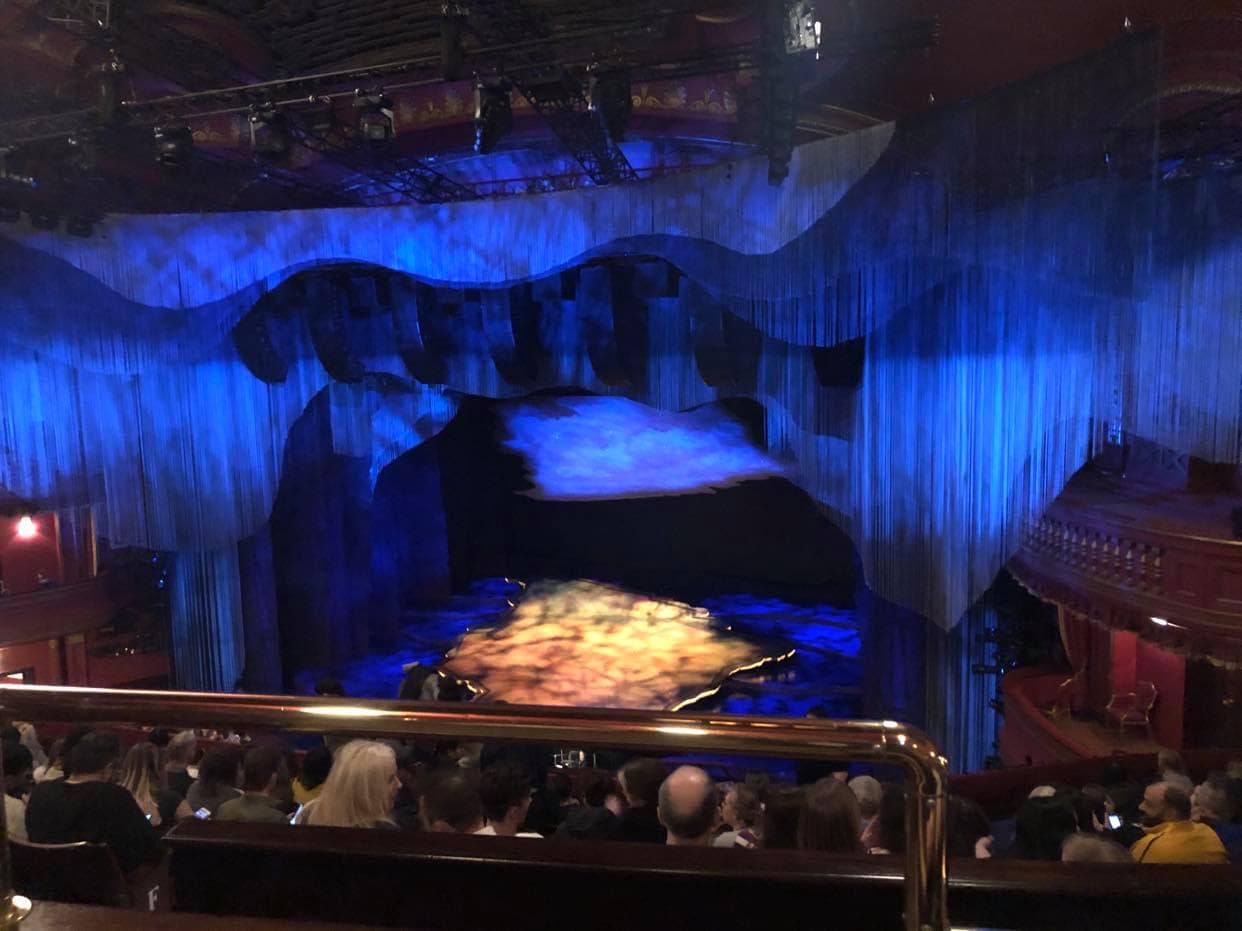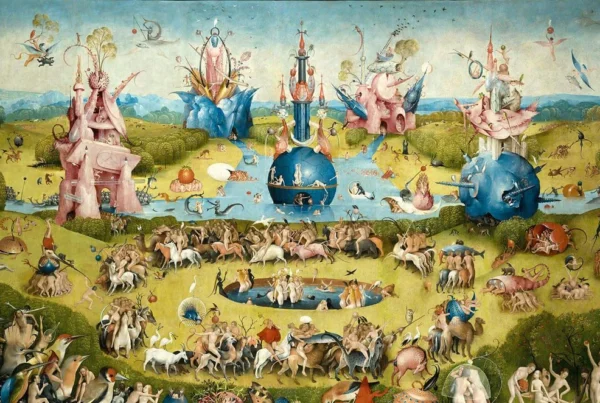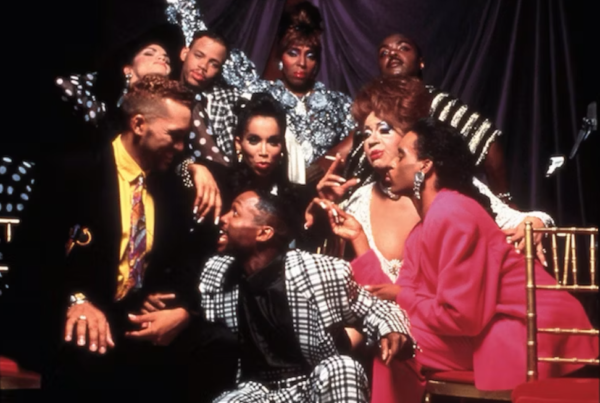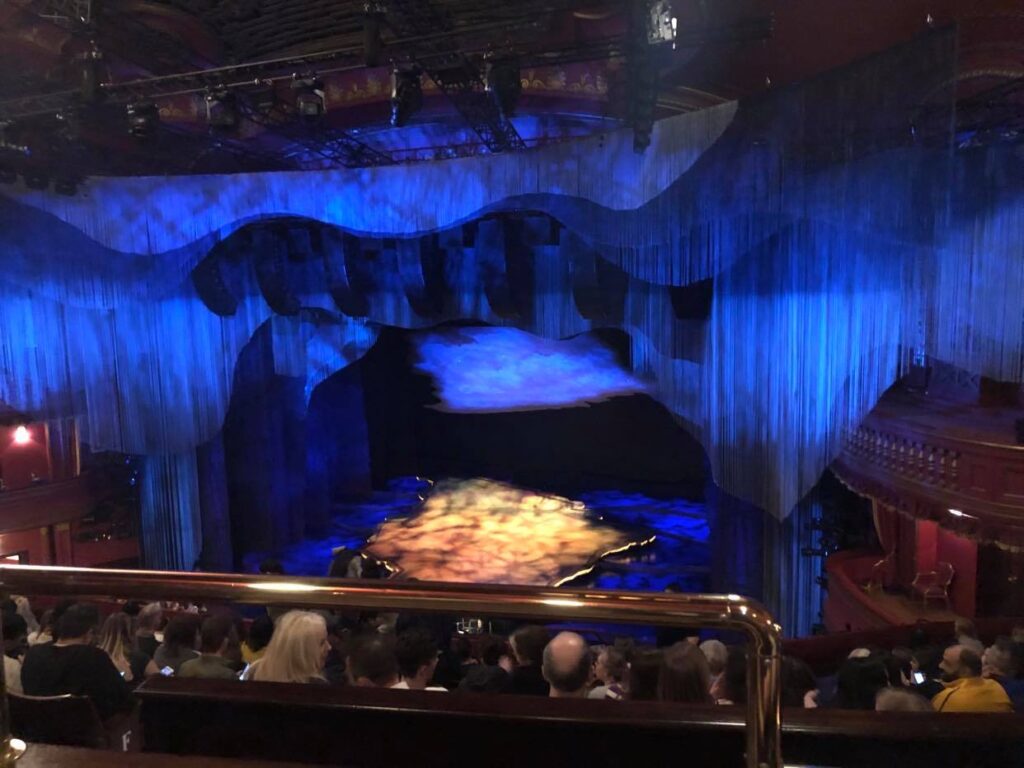
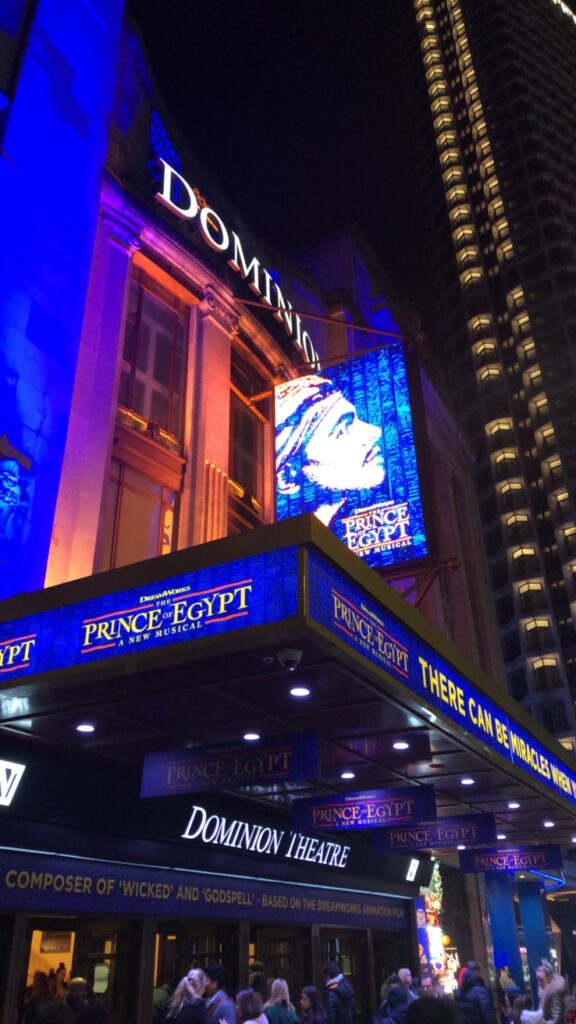
I feel obligated to begin this review by stating that there is definitely going to be some bias. The Prince of Egypt (1998) has been one of my all-time favorite movies for over a decade and the story of the Book of Exodus is something I studied many times in Catholic high school. The story of Moses freeing his people is truly an inspiring story that brings up dark ideas of sacrifice and loss while also celebrating the beauty of life and the power of belief. When I first heard that the musical was coming to the West End I bought a ticket immediately, not wanting to miss out on something amazing. Unfortunately, the stage production of The Prince of Egypt failed to live up to the expectations of this movie fan.
WARNING: THERE WILL BE SPOILERS IN THIS REVIEW FOR BOTH THE MOVIE AND THE STAGE PRODUCTION OF THE PRINCE OF EGYPT
The opening song of the musical, “Deliver Us” has always been my favorite, so it is not surprising that it brought me to tears as the first few notes of the orchestra began to swell. The ensemble cast members work together in a beautiful way, creating things like pyramids and even a river with their bodies, simple costumes allowing them to blend in with the set around them. Mercedesz Csampai stuns with her interpretation of Yocheved, a heartbroken mother who must give up her son in order to save his life.
Along with “Deliver Us”, some of the other original songs from the movie remained by favorite parts of the performance. “The Plagues” may be a song describing a dark moment in Egypt’s history and symbolizing the split relationship of Ramses and Moses, but it has an absolutely banging beat that never fails to make me nod my head along with the music. The choreography is this song was not my favorite as there was a lot of dependency on the screens, but the music remained something I thoroughly enjoyed. “When You Believe” is also another stunning song that nearly brought me to tears, especially when one of the children begins singing, allowing the other cast members to join in the joyous celebration of freedom from captivity in Egypt. Both Christine Allado (Tzipporah) and Alexia Khadime (Miriam) have gorgeous voices that manage to blend as both of them belt for their lives, mixing together in gorgeous harmonies that sent chills throughout the audience.
Of course, one cannot write about a West End show without commenting on the performances of the cast members. Luckily for The Prince of Egypt, its cast’s stunning vocals and beautiful performances were the show’s redeeming qualities. Liam Tamne absolutely shines as Ramses even with the cards his character has been dealt by the production team, expressing the young pharaoh’s feelings through song and acting. Continuing to have the ensemble voice God throughout the musical is incredibly effective and one of the changes from the movie that I agree with. The ensemble is used in a powerful way to embody different parts of the story. One of my favorite scenes was that of Moses and the Burning Bush, when God tells his messenger the famous line, “I Am That I Am”. Instead of simply using special effects and a voiceover of a cast member, the ensemble becomes the bush and speaks with one voice, expressing the voice of God through his people which I found absolutely beautiful. Gary Wilmot brings a fresh interpretation of Jethro with a higher voice than the baritone of Brian Stokes Mitchell from the movie, along with more comedic timing. Debbie Kurup (Tuya) and Tanisha Spring (Nefertari) are given more time to shine than their animated counterparts which is a pleasant development as I am all for more female roles in theatre!
Something else that I applaud the production team for is hiring actual children to play child roles. Seeing grown men and women trying to play children has never been amusing to me, but there is always a fine line between the professional acting of adults versus the inexperience of children, no matter how long they have been acting. Verity Naughton did a fantastic job of hiring the perfect children for the job, with young actors who have solid voices and good stage movement.
Speaking of the cast members and the characters they portray, I was incredibly disappointed to realize that they had cut not only “Playing With the Big Boys”, one of only eight original songs from the movie (and a fantastic scene in general), but also the other High Priest, Huy, originally voiced by Martin Short. Watching the two priests in the movie imitate the miracles of Moses and his God gives the audience more of an explanation for why the Egyptian people would doubt that there was a power greater than their own Gods like Ra, Nut, Anubis, Tefnut, and Sekhment. The audience of the musical could have been given the chance to see that all of the Egyptian’s “miracles” were simply tricks compared to the real power of Moses’s God.
In the case of the choreography, while I appreciated the lyrical beauty, there were bits when it became too much. As a dancer, my eye tends to focus on the ensemble members during full cast numbers when there is choreography. Sean Cheesman is clearly very talented when choreographing a story – The moves of the ensemble members are gorgeously fluid and emotional, giving the production the kind of sparkle that one tends to find in an animated movie when it personifies inanimate objects like rivers and trees. While I did enjoy the lyrical dancing of the cast, at times it felt as if it was too interpretive, taking away from the story and the emotional performances of the actors who were not dancing. Some scenes were difficult to take seriously with such extreme dancing, which at times distracted me and others. There were audience members laughing during the silence in the scene of the death of Egypt’s firstborns, especially Ramses’s son who flops to the ground like a fish and has zero introduction other than his naming ceremony in the appropriately-named “The Naming Ceremony” song.
While I definitely appreciate what Stephen Schwartz has done for the theatre world and even for other animated movies like The Hunchback of Notre Dame, the new songs he wrote for the stage musical are, simply put, forgettable filler. “Faster” had audience members around tilting my head, one even whispering to a woman next to her “Is that it?” Others like “Never in a Million Years” and “One Weak Link” were decent songs on their own, but in the musical, they did not feel earned and even reminded me too much of Wicked, which pulled me out of the experience even more. One song in particular, “For the Rest of My Life”, was an incredible disappointment for me. Luke Brady’s voice is beautiful and soothing, but even his vocals cannot erase the fact that the song doesn’t make sense in the context of the story. Moses followed God’s orders and let the firstborns of Egypt die in order to set his people free. There is no aching monologue of regret in the Bible, simply Moses doing what he is told.
Even I will admit that the movie has its flaws, especially when it comes to the relationship between Moses and Tzipporah. Moses is introduced to her when Ramses makes her Moses’s slave as a gift to him, and later meets her again when he runs away into the desert and is found by the Midianites. Their love story is quickly summed up in the song “Through Heaven’s Eyes” and they are soon married and ready to face the world together. The stage production tries to develop on this relationship between Moses and Tzipporah by adding a song, “Never in a Million Years”, but again it feels forced and does not add anything to the production, making it even longer and contributing nothing to the story as a whole.
Something that definitely pulled me out of being immersed in the production was the costume design. Ann Hould-Ward may have been going for something out of the animated movie, but even from a faraway seat, the costumes appeared cheap. You have the chance to design costumes from Ancient Egypt, I would say go big or go home! I expected gorgeous crowns and regal robes in comparison to the dirty rags of the slaves. The costumes of the Midian people looked like outfits one might find at a shop for cute festival outfits, again making things feel out of place in the ancient world.
When it comes to the set and sound design, I was also unfortunately quite disappointed with the results. While I thoroughly enjoyed Kevin Depinet’s idea of have the beaded curtains stretch out towards the box seats that could be used to make the audience feel immersed, that is one of the very few things I liked about the set as a whole. The curtains were especially effective during scenes in the palace when the stone faces of pharaohs from the past stare down at the cast and audience members. The design felt like it was attempting to following in the steps of Hamilton with a simple set, but also trying to add something as a tribute to the animated movies by including screens.
Another thing that could’ve been improved with the set was the unnecessary and out-of-place focus on digital screens. Yes, the movie the show is based on is animated. No, that doesn’t mean that the screens have to be constantly used in order to make up for a lack of large set pieces. If you’re going to depend so much on animation, why not use scenes and designs from the movie? Some of the visuals paled in comparison to the pieces of the physical set on stage which was quite a disappointing contrast that again, pulled me out of becoming fully immersed in the show.
I’m not sure what was going on with the sound, and I hope that it has been fixed since the last performance I saw, as the actors were difficult to understand and there were many times where it was impossible to hear over the orchestra. During “Deliver Us” multiple mics had been turned on that I assume weren’t supposed to be as there was frequent talking which did not belong in the opening number. Gareth Owen has proven his prowess in sound design with Come From Away and & Juliet, so I hope that the things I witnessed were merely flukes and that things will improve throughout the run.
The main thing that this production struggles with is drawing the line between serious and humorous, deciding between whether a scene is gritty or fun. One aspect of poorly-timed humor that particularly annoyed me was the giant whale after the death of Hotep and the soldiers in the Red Sea. In the movie, the whale appears as a beautiful creature still swimming through the vast sea even though it has been parted by God through Moses and his staff. Such a thing of beauty should not be used for a cheap laugh as it is in the production.
Now, please do not misunderstand my complaints. I understand that the production team had constraints transferring the musical from the screen to the stage and know that it’s certainly not an easy task trying to please fans, but there are things that could have been done differently in order to accommodate this change.
Tragically, the dramatic end of the show was the most disappointing aspect of the entire performance. Why would you change the original ending? Even though I am definitely not the most religious person, seeing Ramses survive and become a “good person” does not go with the Old Testament’s portrayal of God, an unforgiving being who destroys those who go against His Will. Even Disney movies do not hesitate to kill their villains – Gaston falls to his death from the Beast’s castle, Ursula is stabbed by the bow of Eric’s ship, Scar is eaten by the hyenas, Clayton is hung by a noose of vines, and Dr. Facilier is quite literally dragged to the “Other Side” by the spirits of the shadows. Why not allow Ramses to meet a similar end? Moses can still regret his actions, but it will not be the same if he knows that his brother is still alive after the things he has done. In a way, it takes away from the sacrifice that Moses makes in order to fulfill his destiny as the messenger of God, the one who frees his people.
Ultimately, not even a simply incredible cast with a powerful message of hope could save this show from being a mere shell of the animated movie.
Other posts that may interest you:
- The Trouble with ‘Ecocide’
- Carbon dioxide removal – hit or miss?
- Local Victories for Turkish Opposition — A Sign of Hope?
- Are France and Japan a Mismatch Made in Heaven?
- A Reflection on Dark Tourism
Discover more from The Sundial Press
Subscribe to get the latest posts sent to your email.


